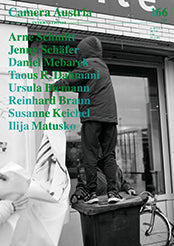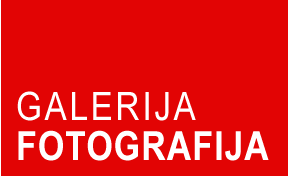Camera Austria International 166 | 2024
Camera Austria International 166 | 2024
Couldn't load pickup availability
Secured and trusted checkout with:

Despite political aspirations to enable people from all social and economic backgrounds, regardless of residency status, to gain equal access to education—and thus also to cultural and economic capital—studies show that in reality this promise is never totally fulfilled. Against this backdrop, Camera Austria International No. 166 is introducing artistic positions that deal with the complex, often subtle aspects of social distinction in an educational or training context, with the possibly subversive potential of educational institutions, or with non-Western forms of knowledge production.
For this issue, Arne Schmitt and Jenny Schäfer have jointly developed an image-text contribution. Stills from the photo film Unser Haus: After 15 Years of Learning (2024), in which Schmitt approximates the architecture of an iconic school building in Zurich, are juxtaposed by Schäfer with her autofictional text about aesthetic perception and design, which are, not least, codetermined by mechanisms of (conscious) differentiation: “Ungraciously I am sitting on a balcony. People in my peer group are talking about the new lamp standing on the table. I am pondering how long one can talk appreciatively about a lamp that is only worth appreciating because it has a classic design, because it was rereleased with touch functionality. 455 euros for just a simple object, as the nods of my peer group affirm.”
In “Echoes of Activism,” Taous R. Dahmani speaks with Daniel Mebarek about his photographic series Radicalis (2020–ongoing), in which he traces the history and everyday life of the Université Paris 8 Vincennes-Saint-Denis. Founded as an experimental “anti-Sorbonne” after the student revolts of May 1968, the “project not only sought to make tertiary education accessible; it also proposed an innovative curriculum and new pedagogical approaches,” as Daniel Mebarek notes. Here, the conversation thematizes in particular how close the university’s program comes to grassroots movements and how its revolutionary character is supported on this fundamental level, which still today defines the self-image of this university set in the north of Paris.
Reinhard Braun in his contribution details how the working approach of Ursula Biemann has changed since she became involved with the establishment of an Indigenous university in southern Colombia in 2018, by invitation of Hernando Chindoy Chindoy, who at the time was representing the Inga people. In her long-term project Devenir Universidad, the Swiss artist examines how traditional Indigenous and contemporary Western knowledge are mediated together at this university, and how collectively supported knowledge production can be successful. Braun interprets Biemann’s approach as the collaborative development of “a biocultural and pluri-epistemic cognitive territory that arises from communication between humans and nonhumans and is manifested in language and stories.”
“The paradox is that while the school is seen as a liberating institution geared towards the individual and his or her intellectual and social development, it in fact achieves the exact opposite—once again subjecting adolescents to the rules and regulations of a social class.” In his essay, Ilija Matusko enters the visual cosmos of Susanne Keichel, who with Schule (School, 2022–ongoing) and Arbeit (Work, 2023–ongoing) introduces excerpts from her three-part project Soziale Gerechtigkeit (Social Justice). Through emphatic snapshots, Matusko reflects on how social inequality is reproduced in school contexts, but also on the role assumed by artists and authors and on the spaces of self-empowerment that may arise in this framework.
Last but not least, we are very pleased to present in the Forum rubric a selection of photographic positions that caught our eye while viewing portfolios for the Kranj Foto Fest in the spring of this year.
Christina Töpfer, June Drevet
June 2024
Cover: Daniel Mebarek, from the series: Radicalis, 2020–ongoing. Inkjet print, dimensions variable.
Language: English / German
Size: 30 x 21 cm
Binding: softcover
Publisher: Camera Austria, 2024


